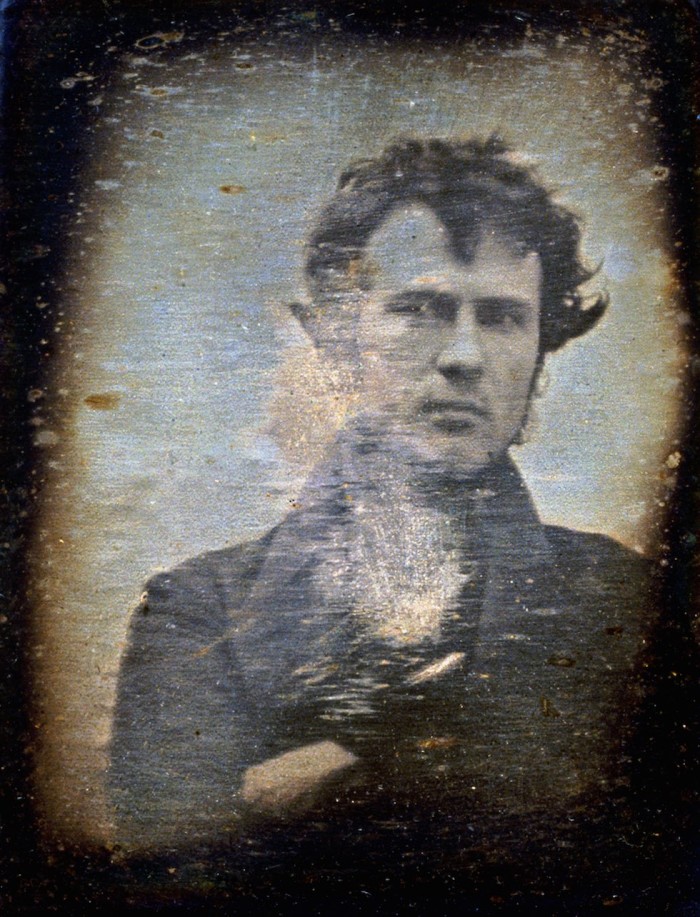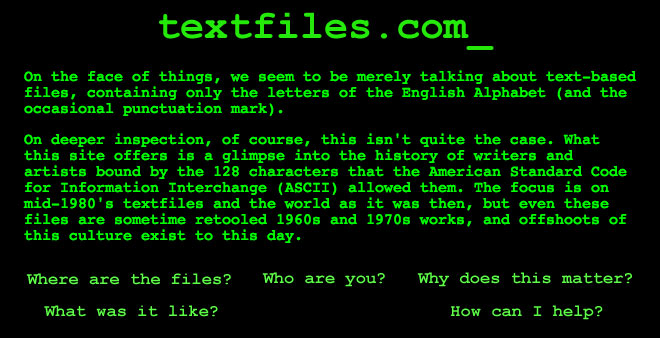Today the world contains a vast amount of data which continues to grow at speed.
Explore moments in history which have played a part in shaping today’s data-driven society.

Timo Arnall, Internet Machine, 2014 © Timo Arnall Source: https://www.elasticspace.com/wp-content/uploads/2014/05/InternetMachine10-web.jpg
1801
William Playfair, the founder of graphical methods of data, develops the first pie chart.
1837
The invention of the Telegraph and Morse Code by Samuel Morse revolutionised the way in which messages were delivered over long distances with the transmission of simple messages using a code.
1839
The first ever selfie was taken by a pioneering photographer Robert Cornelius
1858
Florence Nightingale revolutionises data analysis through diagrams and tables of data featured in ‘Mortality of the British Army,’ published in 1856.

Notes on matters affecting health, efficiency and hospital administration of the British Army. Reproduced courtesy of the Florence Nightingale Museum Trust, London
1881
A breakthrough in big data as Herman Hollarith ‘widely regarded as the father of modern automatic computation,’ was commissioned by Roosevelt to work on the US Consensus. He designed a ‘tabulator machine,’ a punch card sorting system to tally the results, which vastly reduced the workload to only 3 years saving the US government $5 million.
1928
The notion of storing data through magnetic fields was first conceived by Fritz Phleumer, a German/ Australian engineer, who invented a sound recording device with magnetic tape.
1936
The introduction of Alan Turing’s concept for a ‘universal machine’ which outlined the use of ‘computable numbers’ and paved the way for modern computing.
1965
The first explorations into face recognition software takes place by Woody Bledsoe one of the founders of artificial intelligence, and computer scientists Helen Chan Wolf, and Charles Bisson.
1966
Buzz Aldrin was the first astronaut to take a selfie in space.
1971
The first email was sent by Ray Tomlinson to himself using the ARPANET, using two computers sat right next to each other.
1978
The creation of BBS (Bulletin Board Systems), by Ward Christensen and Randy Suess, allowed data to shared to computers through dial-up on phone lines.
Source: Wired
1991
After years of evolution, the Internet arrived in the 1990’s for public use. Computer programmer, Tim Berners-Lee introduced the World Wide Web, transforming the ‘web’ as a source of information.
“Every time you connect to the internet, you pass through time, space, and law. Information is sent out from your computer all over the world, and sent back from there.” James Bridle, Citizen X
1993
The very first Smartphone was named ‘Simon’ was released 15 years before Apple’s first iPhone.
1996
Data storage is now more economically sound than paper.
1997
Google launches it’s own search engine.
2000
Following the turn of the century, data became personal with the advent of the ‘cloud,’ a theoretically unlimited space for the storage of personal and business data.
2001
A free access, free Internet Encyclopaedia, known as Wikipedia was launched by Jimmy Wales and Larry Sangerwhich allows users to submit and edit content, with 26,684,587 registered editors. In November 2005 the site had amassed 5,000,000 articles.
2003
In 2003 Myspace was born with it’s popularity growing quickly to become the most popular social media network between 2005 to 2008. Over the following years, the number of social media sites continued to grow with the launch of Linkedin, Twitter and Facebook.
2004
Mark Zuckerberg launches a social media site known as Facebook whilst at Harvard College marking a rise of social media sites centred around users creating their own personal profiles.
2005
The birth of Web 2.0, a term first brought in to popular use by Tim O’Reilly and Dale Doherty in late 2004, allowed the prominence of user generated content across social media channels.
“The Internet is said to show our common humanity. Through its data, it is said to provide a kind of omniscience, and through its social networks, a deeper sense of connection.” Jonathon Harris, Network Effect
2006
In 2006, Twitter came on to the scene and changed the course of reporting on live events and user generated based content. Sharing personal stories in 140 characters became an art.
Wikileaks registers their domain name, and posts its first document. Represented by Julian Assange, the site is ‘a multi-jurisdictional public service designed to protect whistleblowers, journalists and activists who have sensitive materials to communicate to the public.’
2007
In 2007, Apple released the first iPhone which Steve Jobs describes as “a revolutionary and magical product.”
2009
An initiative to increase the amount of ‘open data’ was introduced by then Prime Minister, Gordon Brown. Inventor of the World Wide Web Web, Sir Tim Berners-Lee launches data.gov.uk, allowing access to a large body of public data.
2013
A former CIA agent, Edward Snowden, meets journalists in a Hong Kong hotel room and leaks classified information about the National Security Service to the world. The story fuelled an on-going debate about mass surveillance and the balance between national security and private data.
2015
Smart city technologies are being used by cities to analyse real time information from data with the goal of improving services such transport and health, and quality of life by saving time, reducing costs and engaging with citizens.
The production of data is expanding at an astonishing pace. Experts now predict an estimated 4300% increase in annual data generation by 2020.


